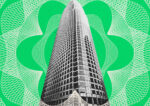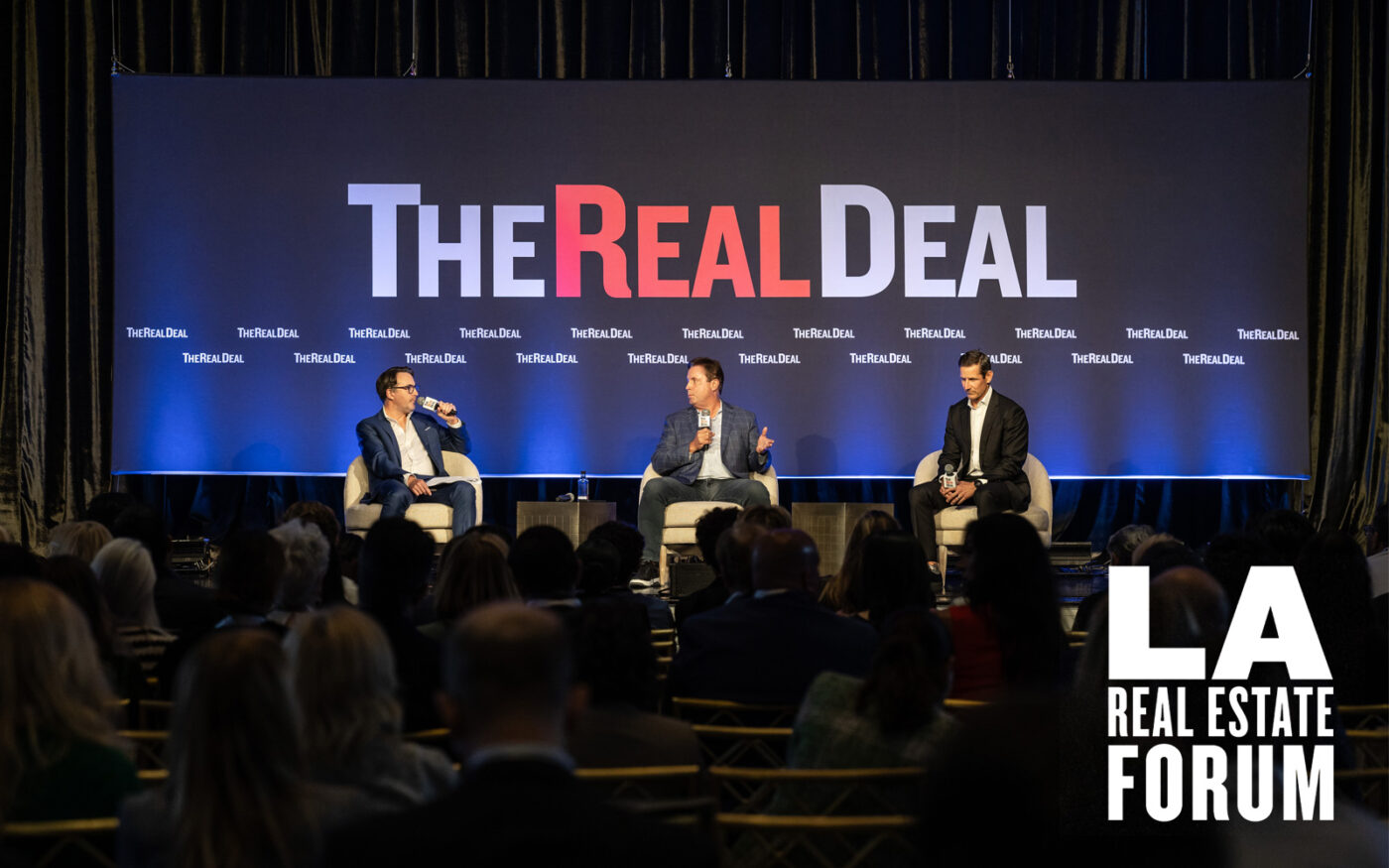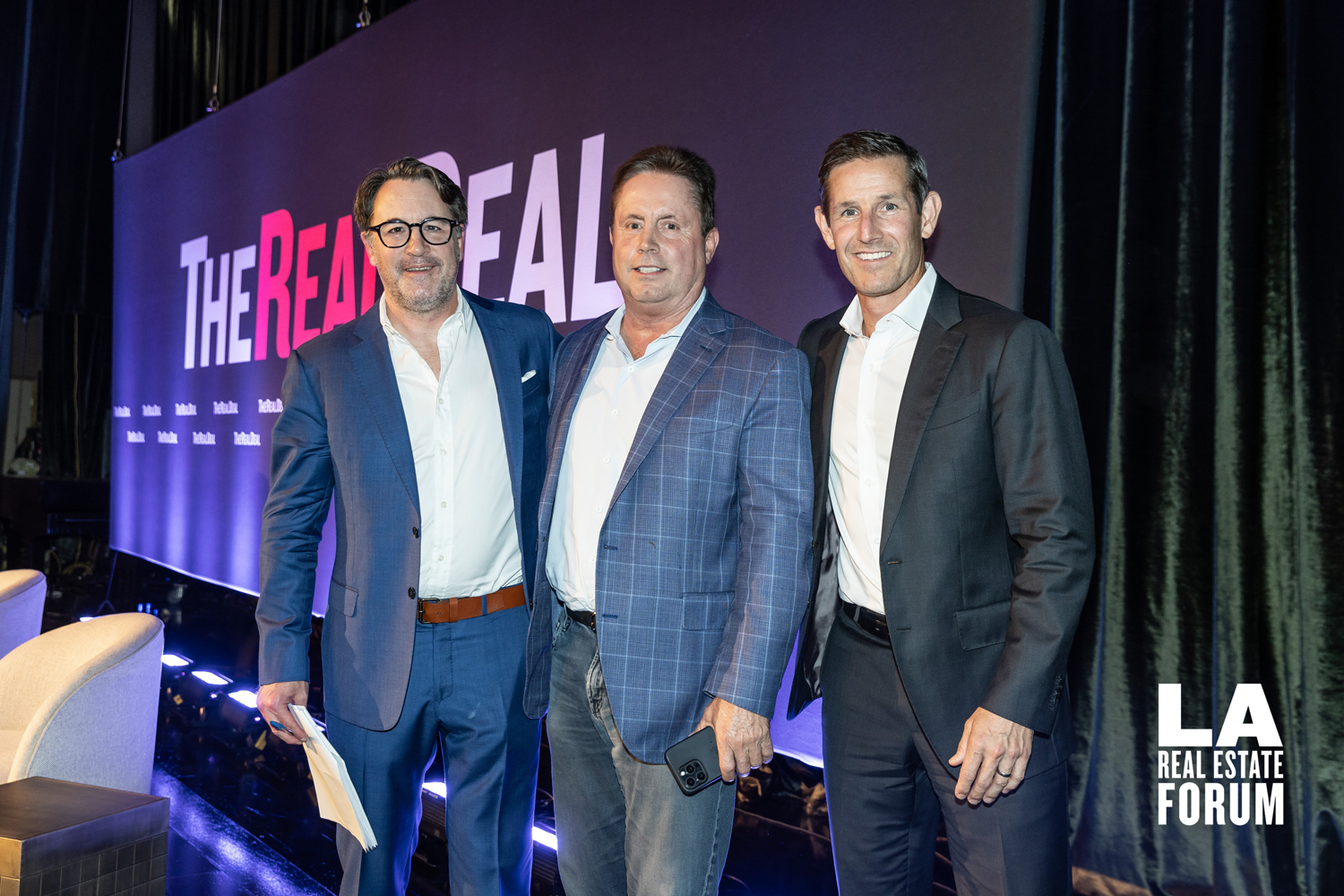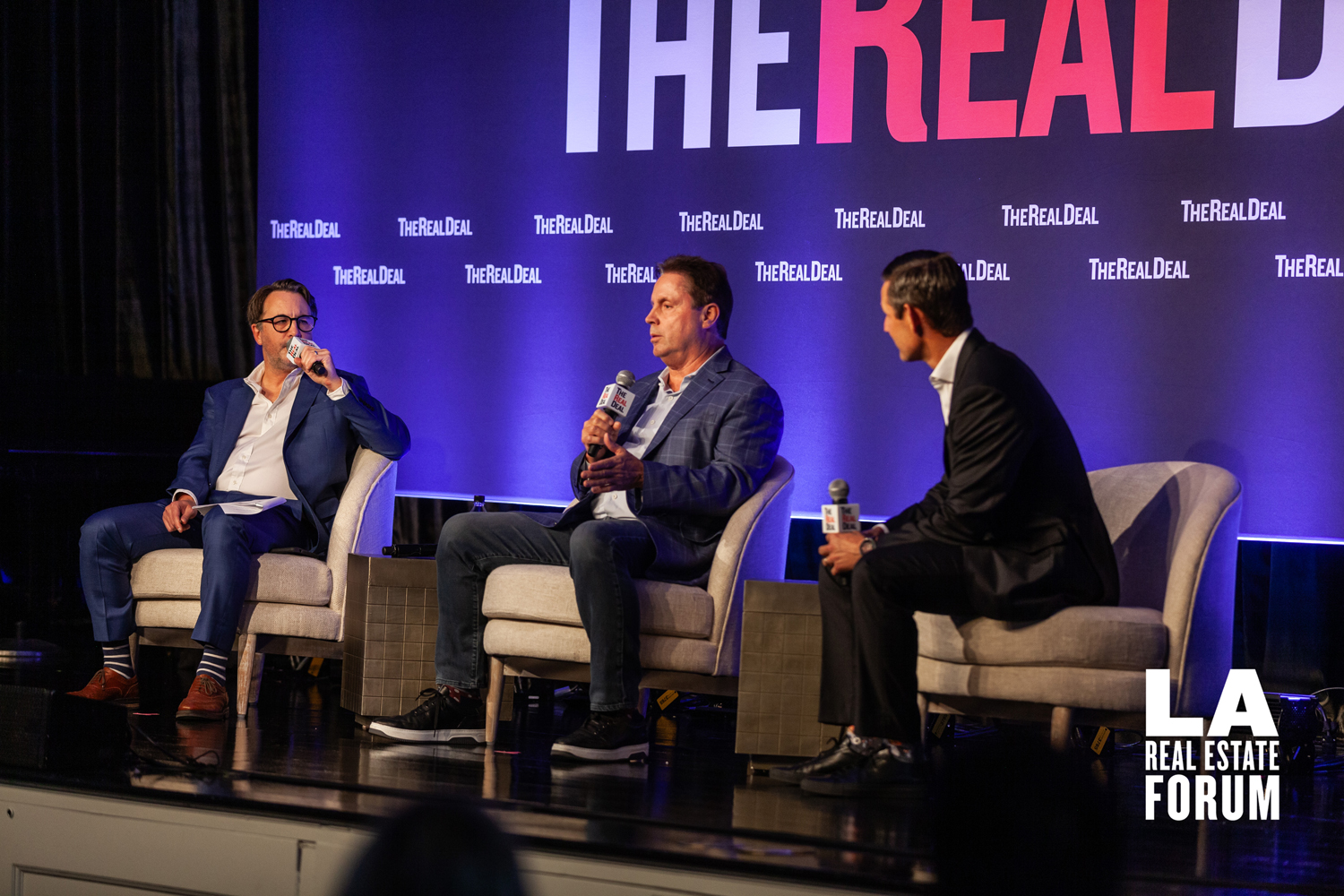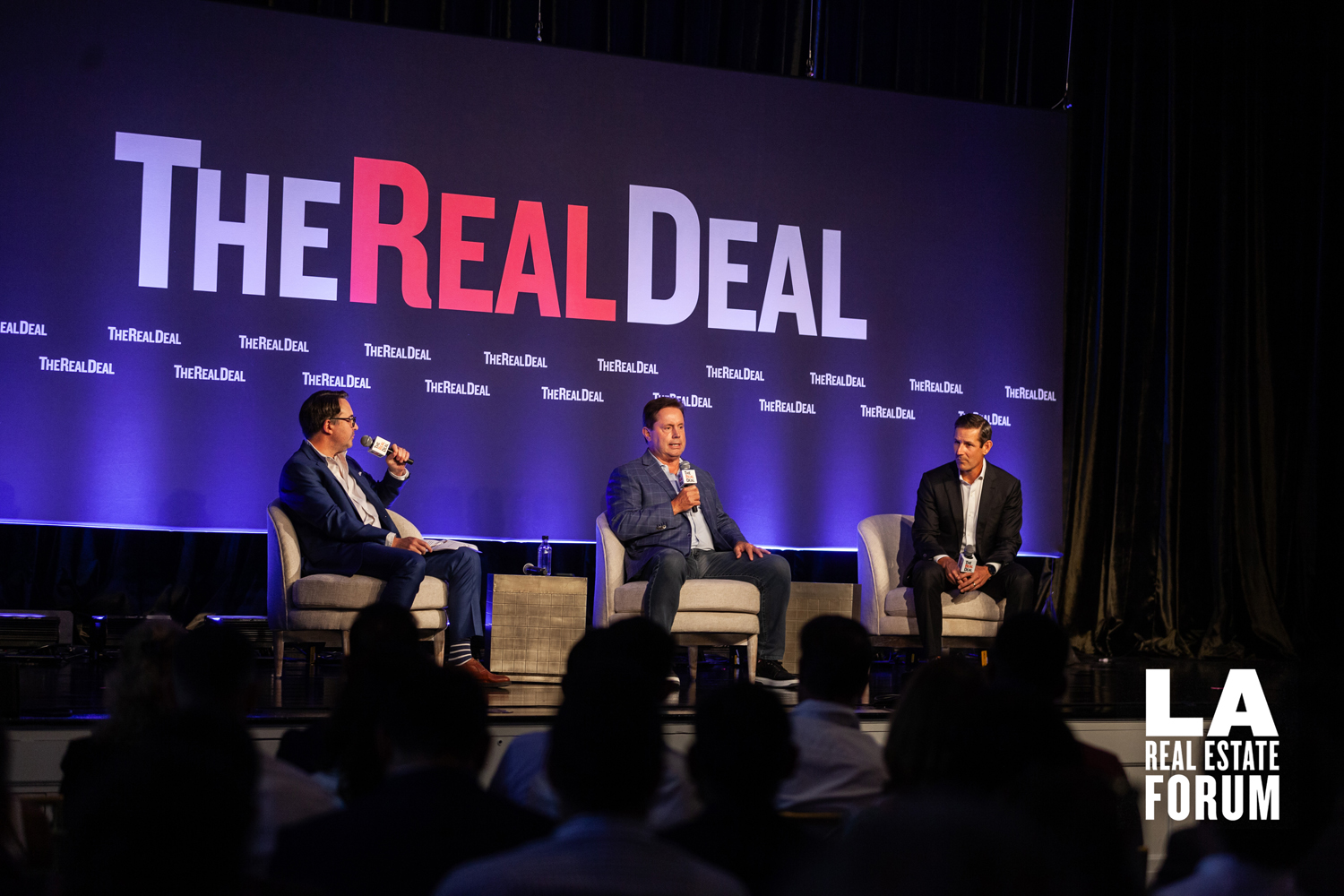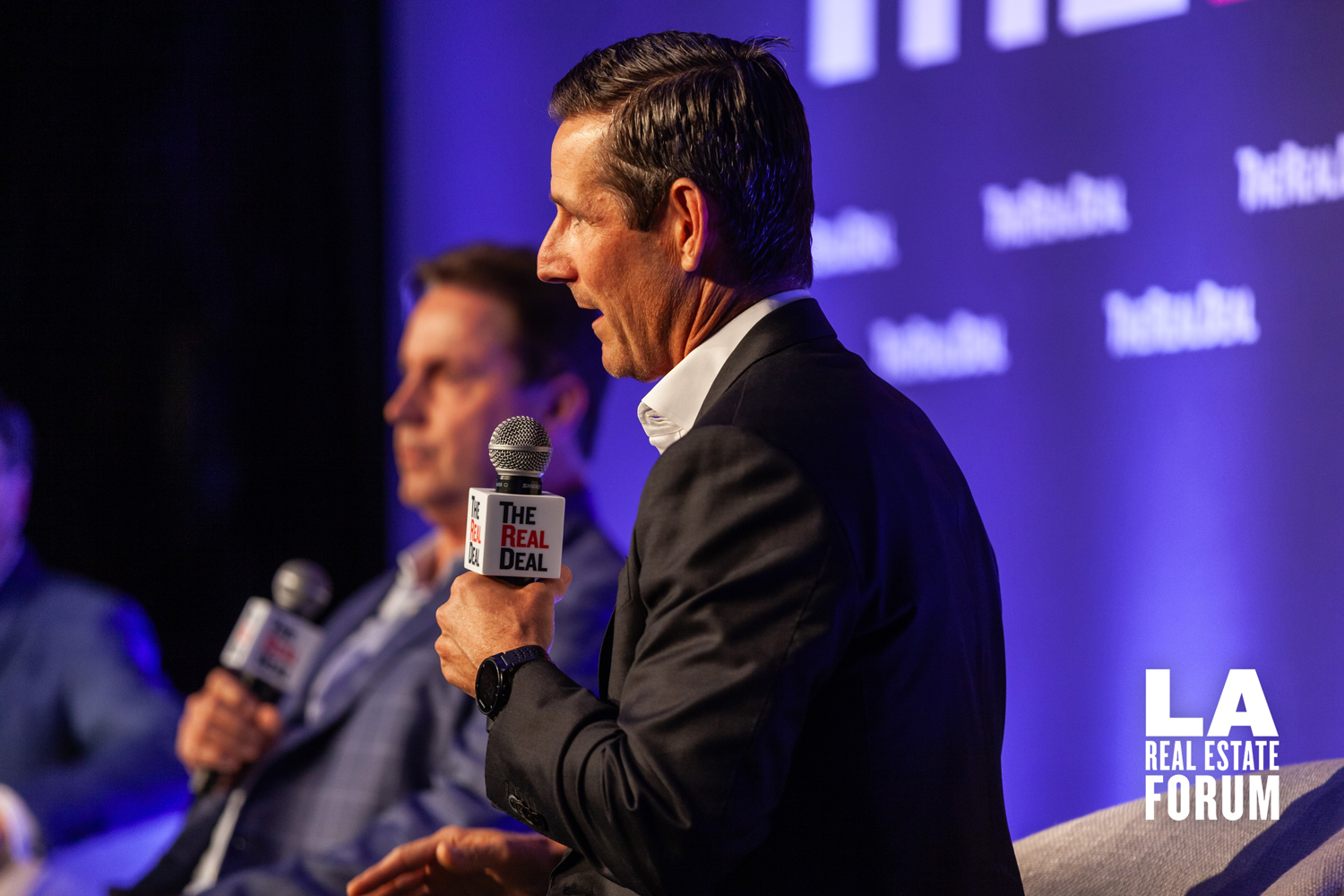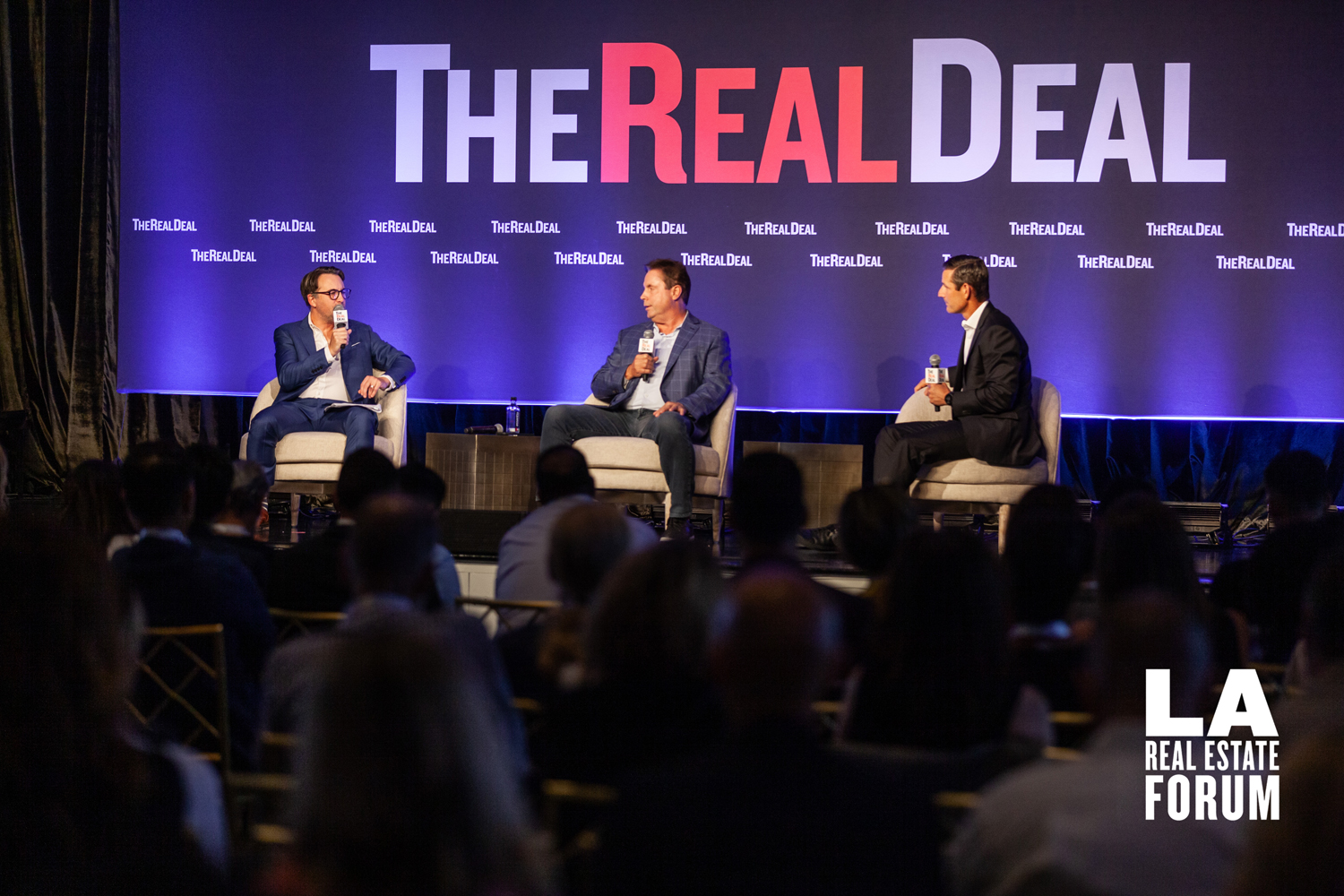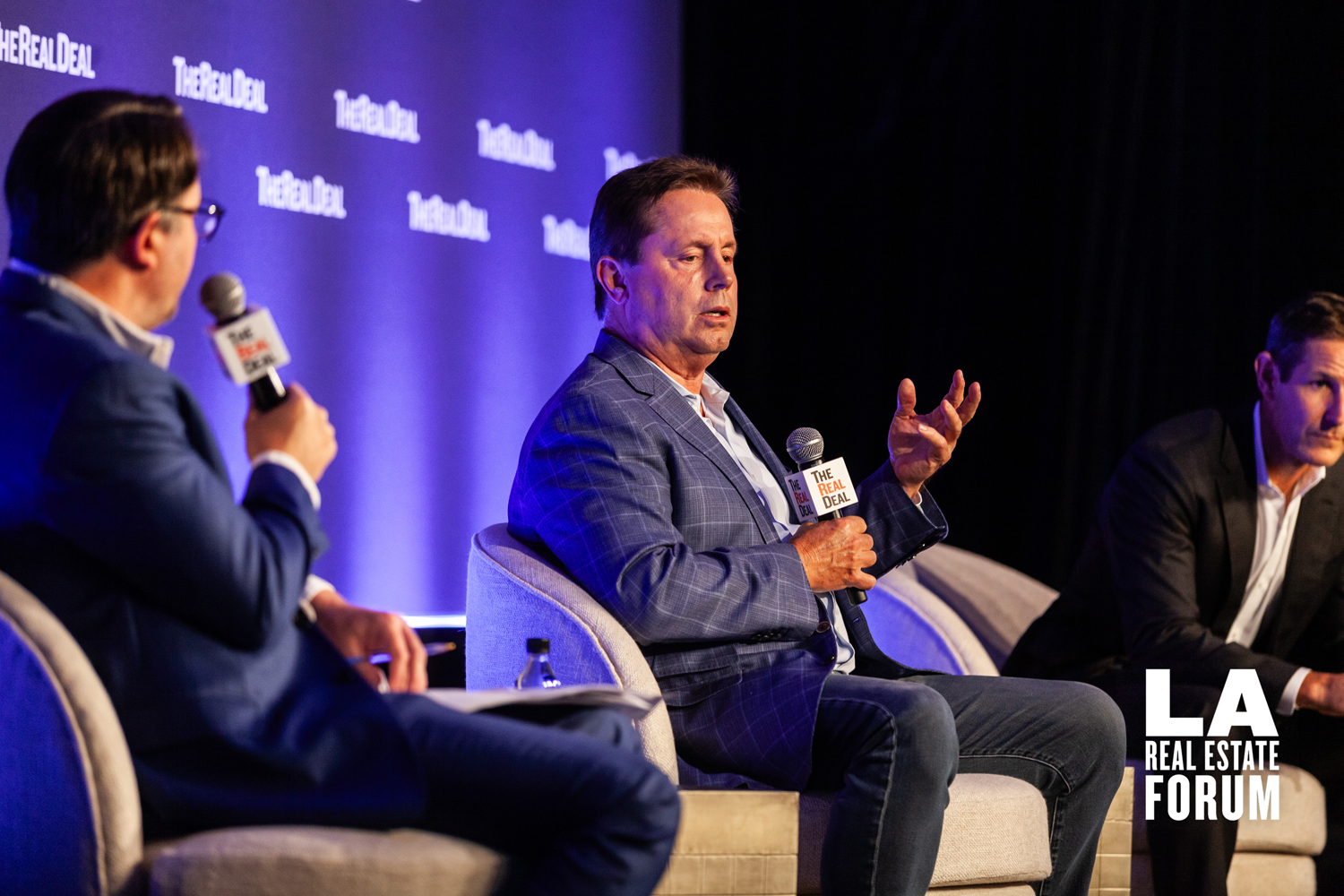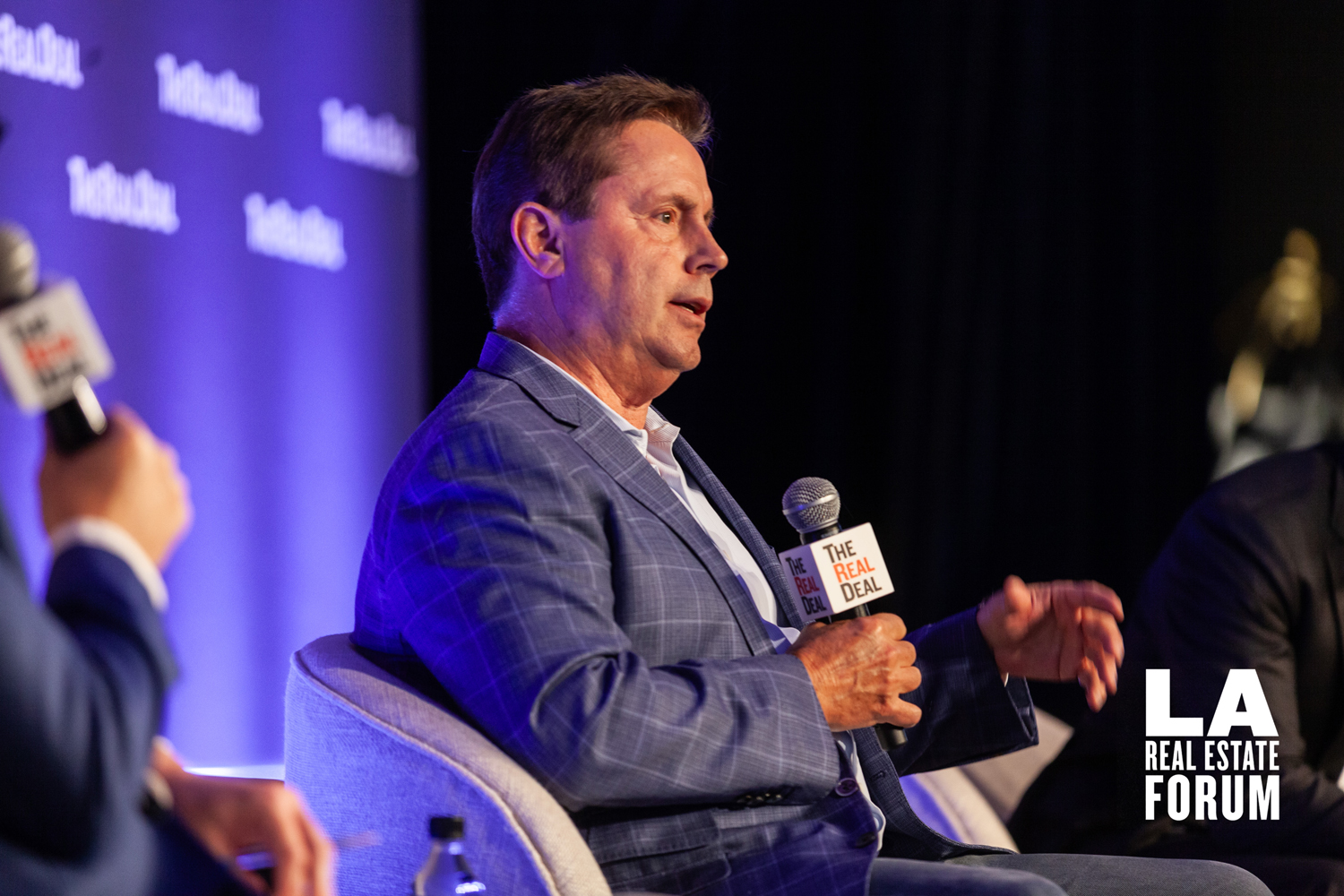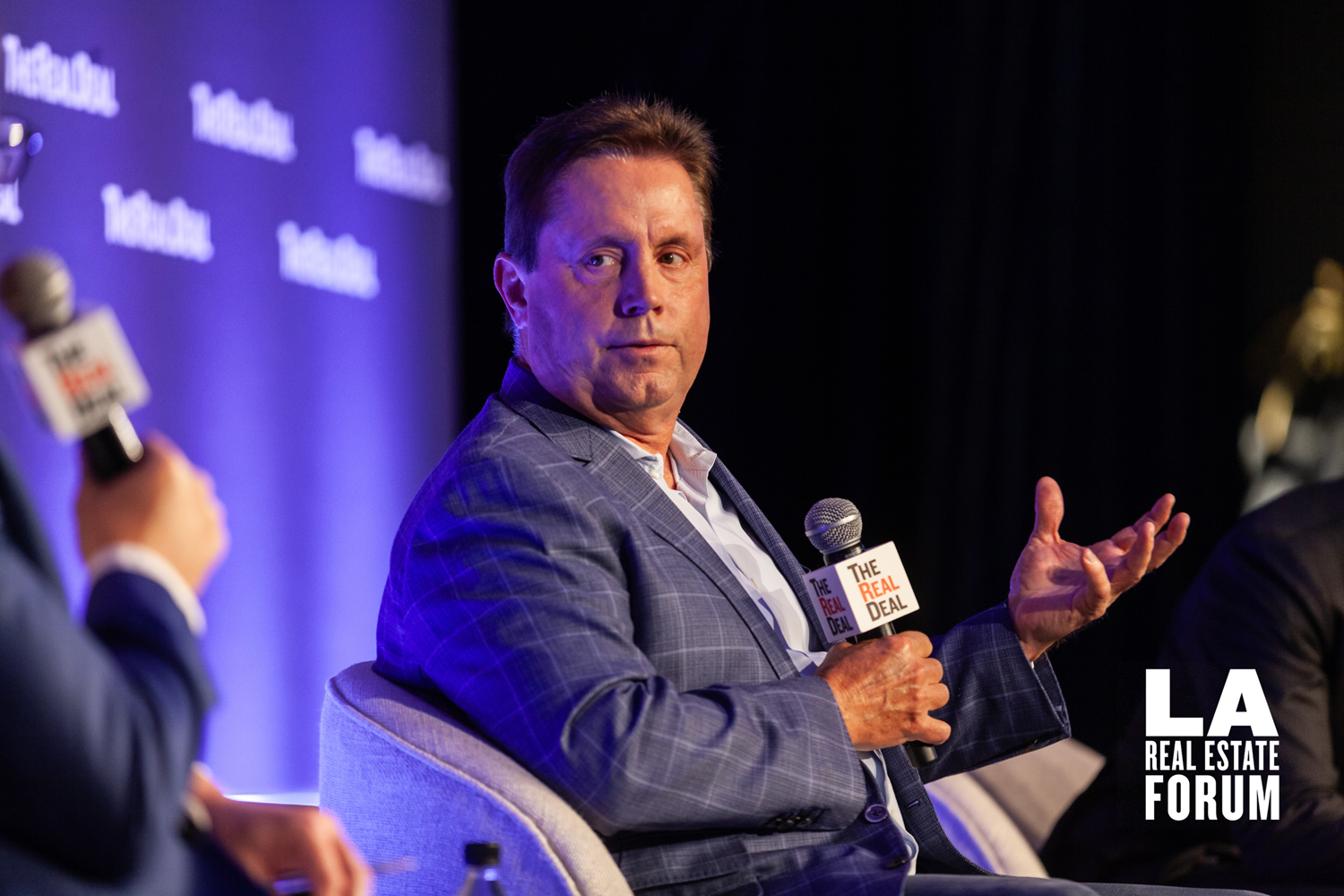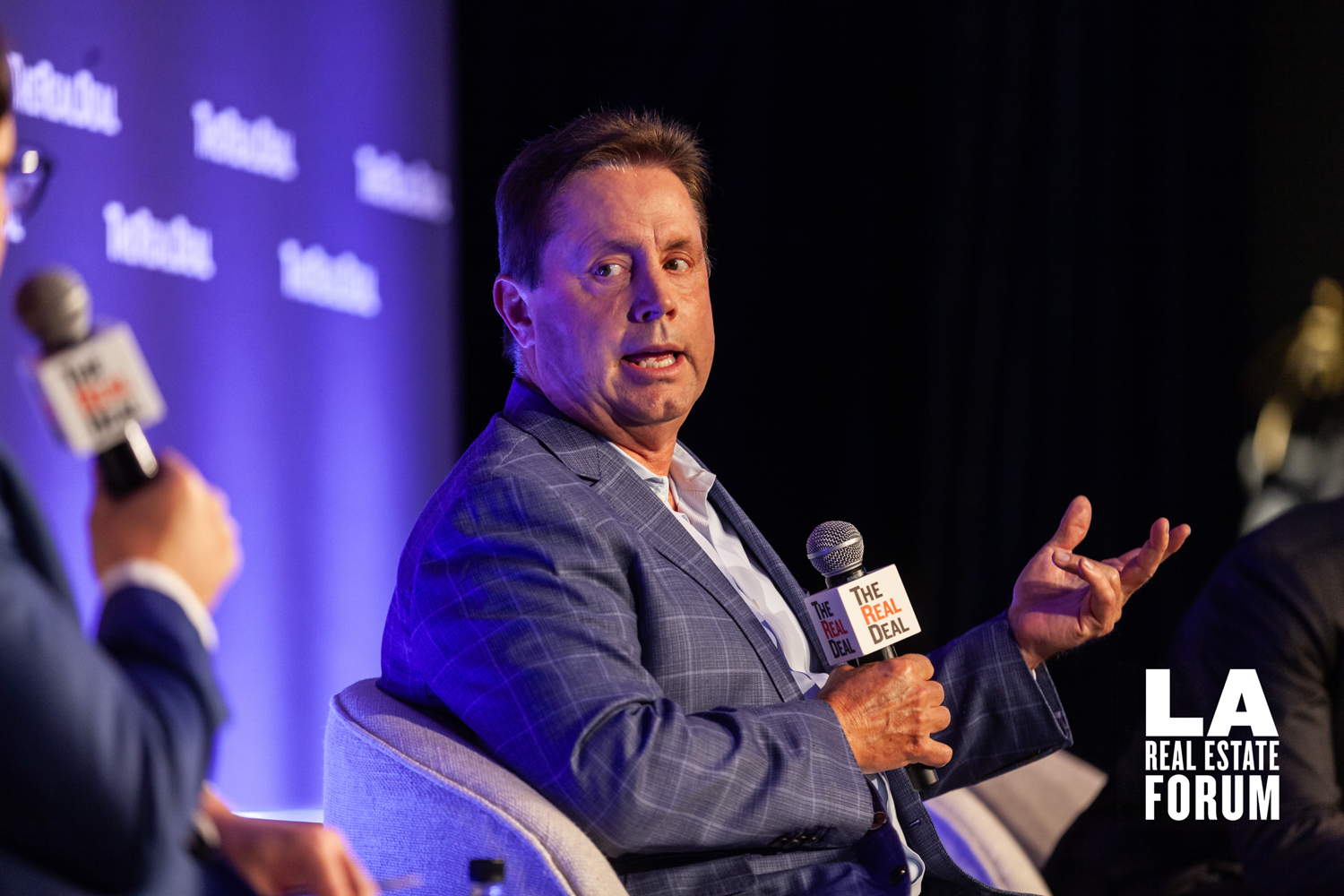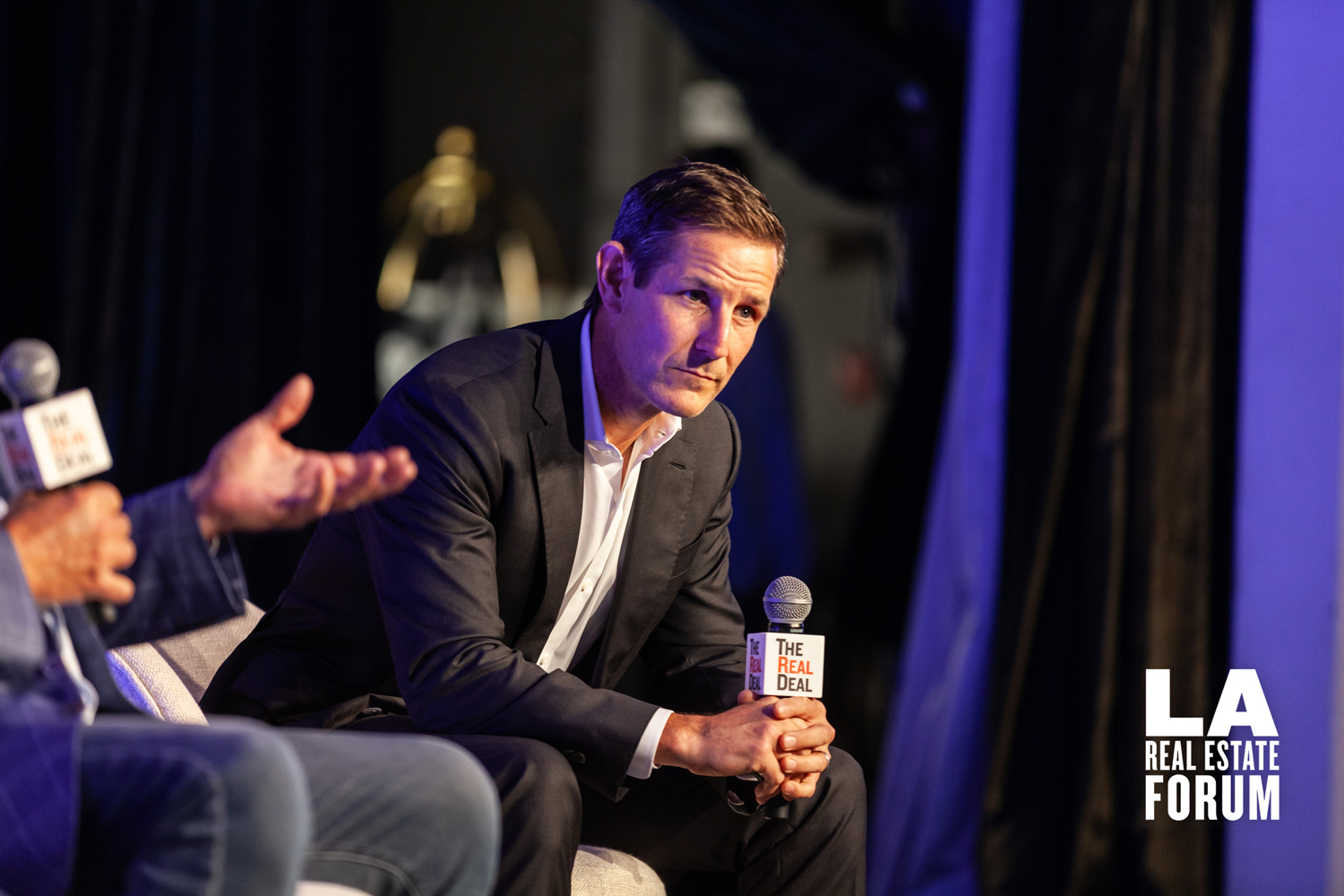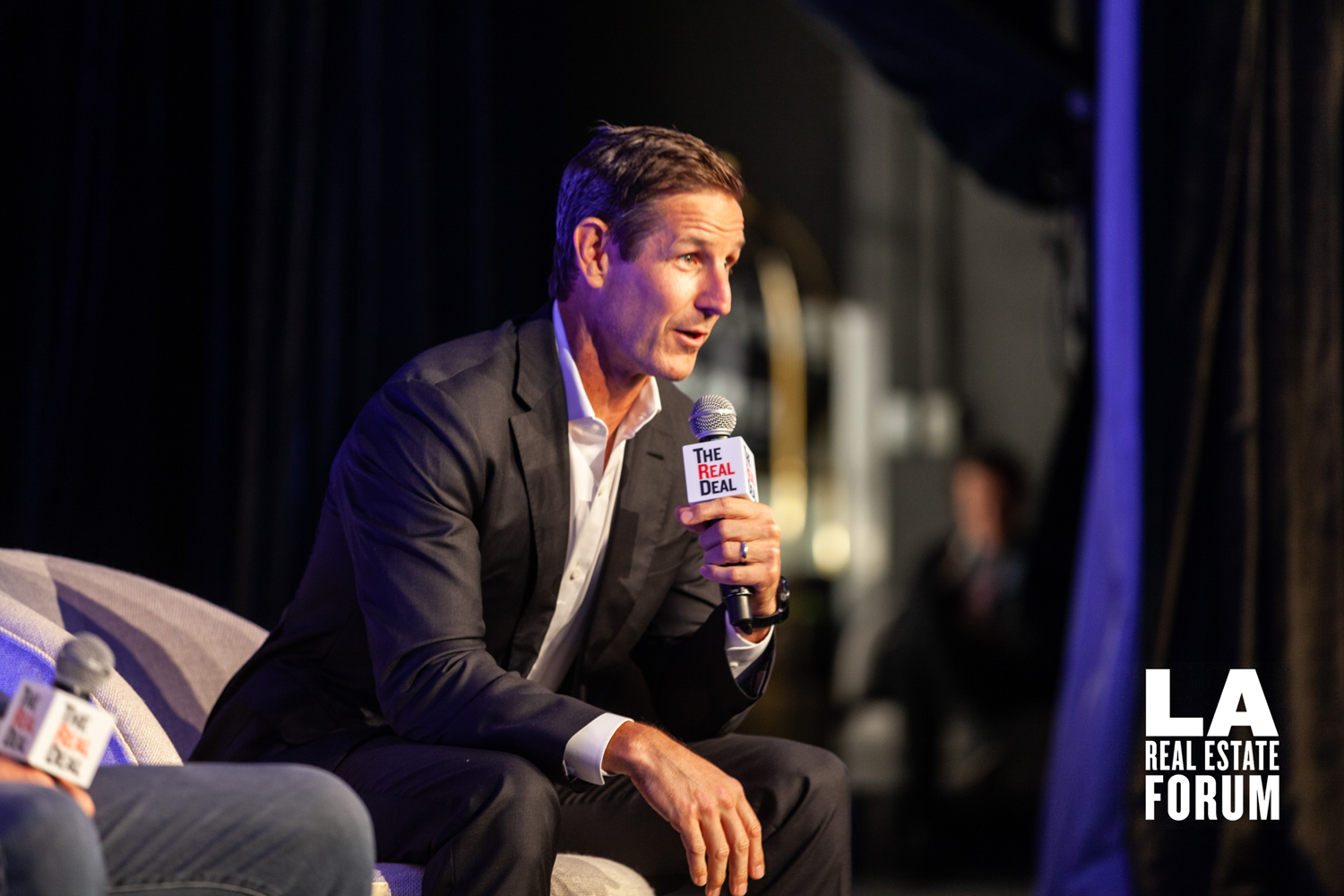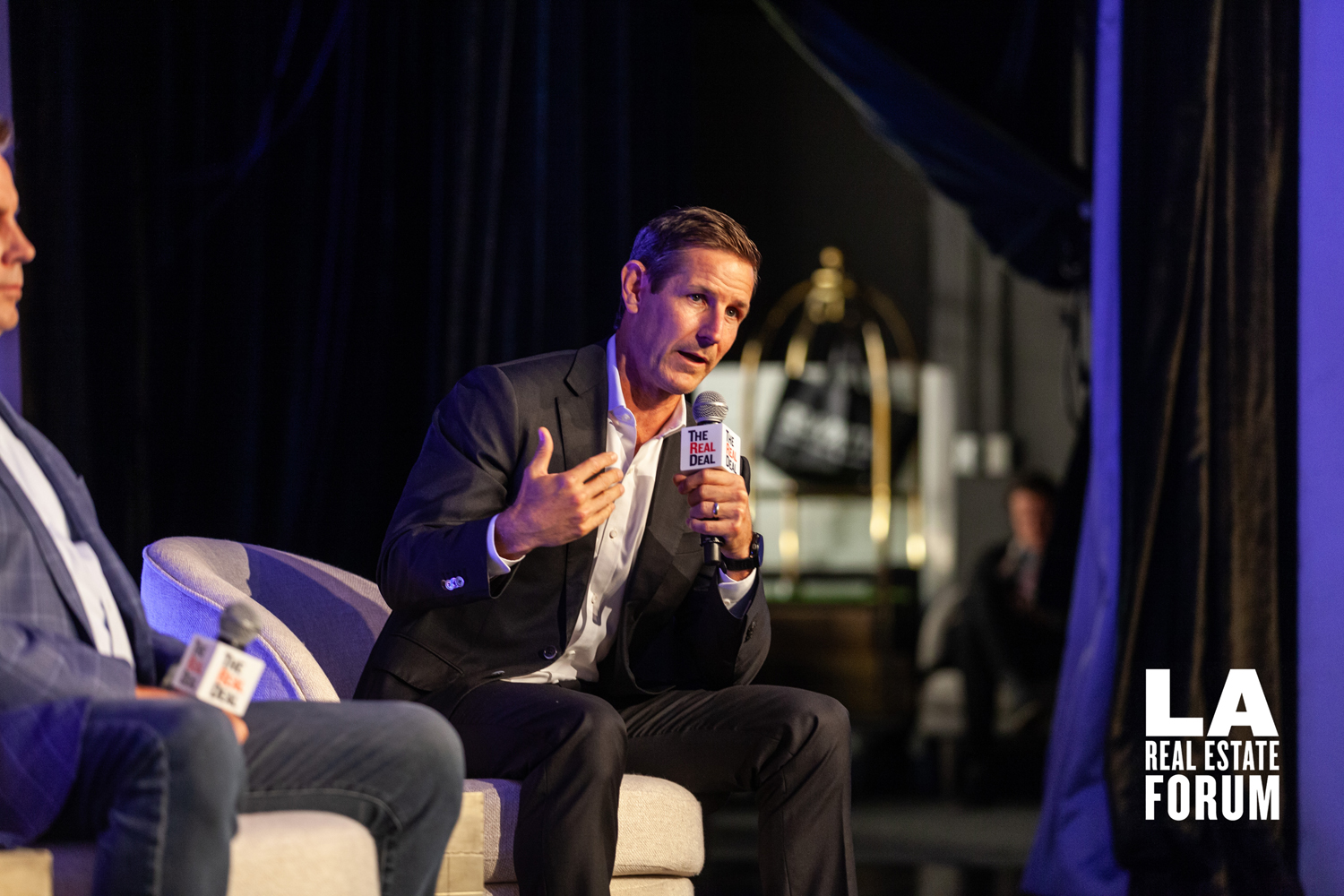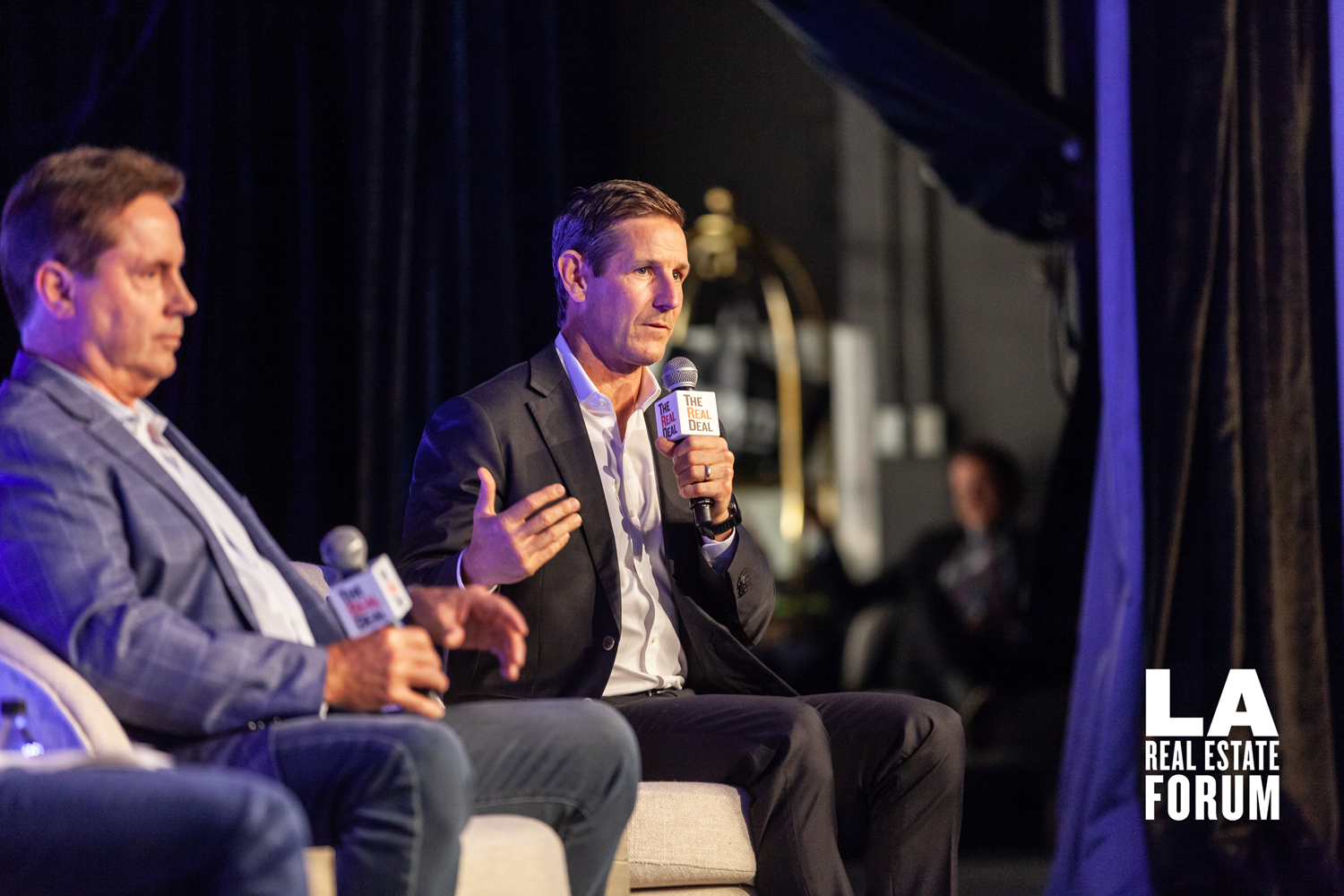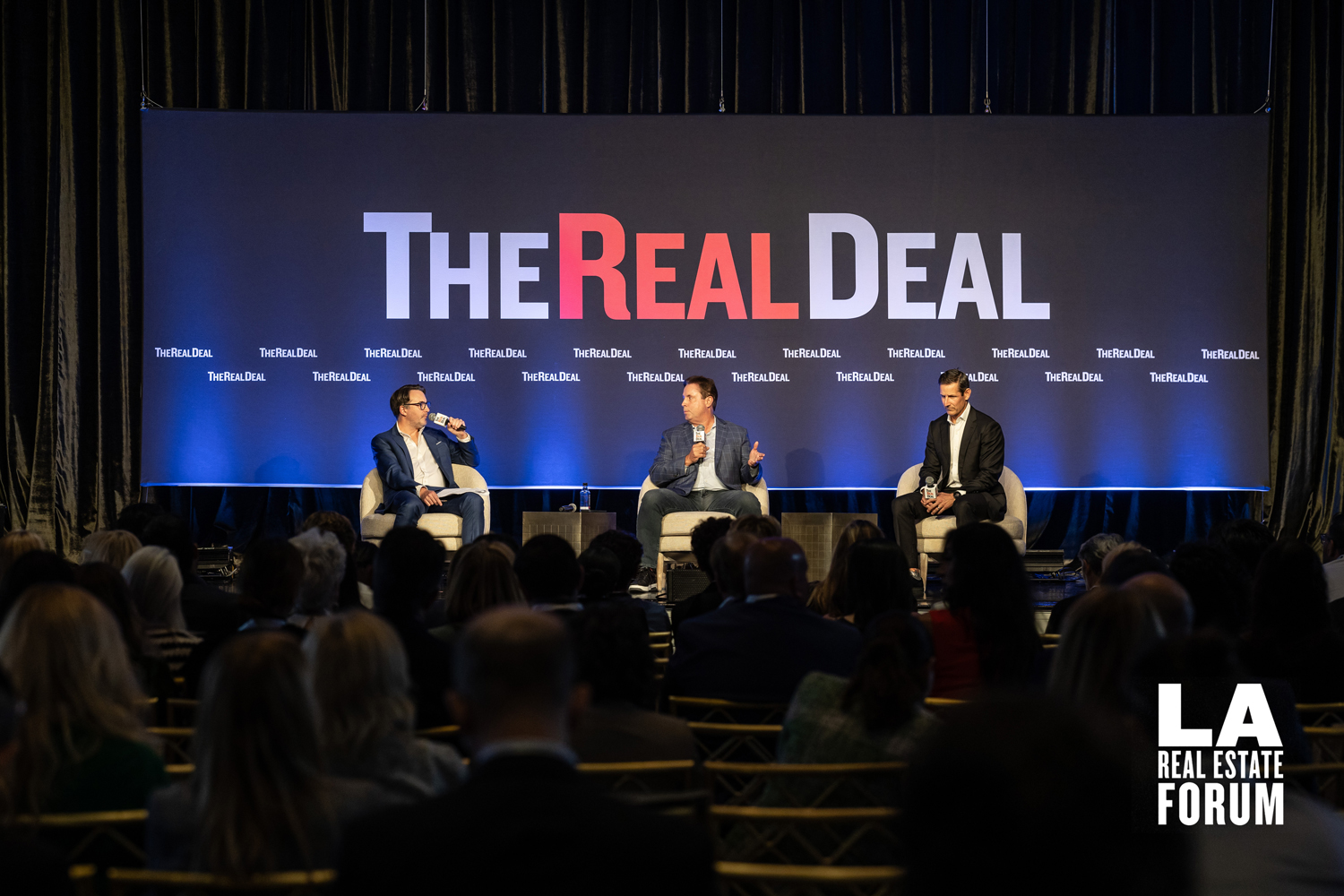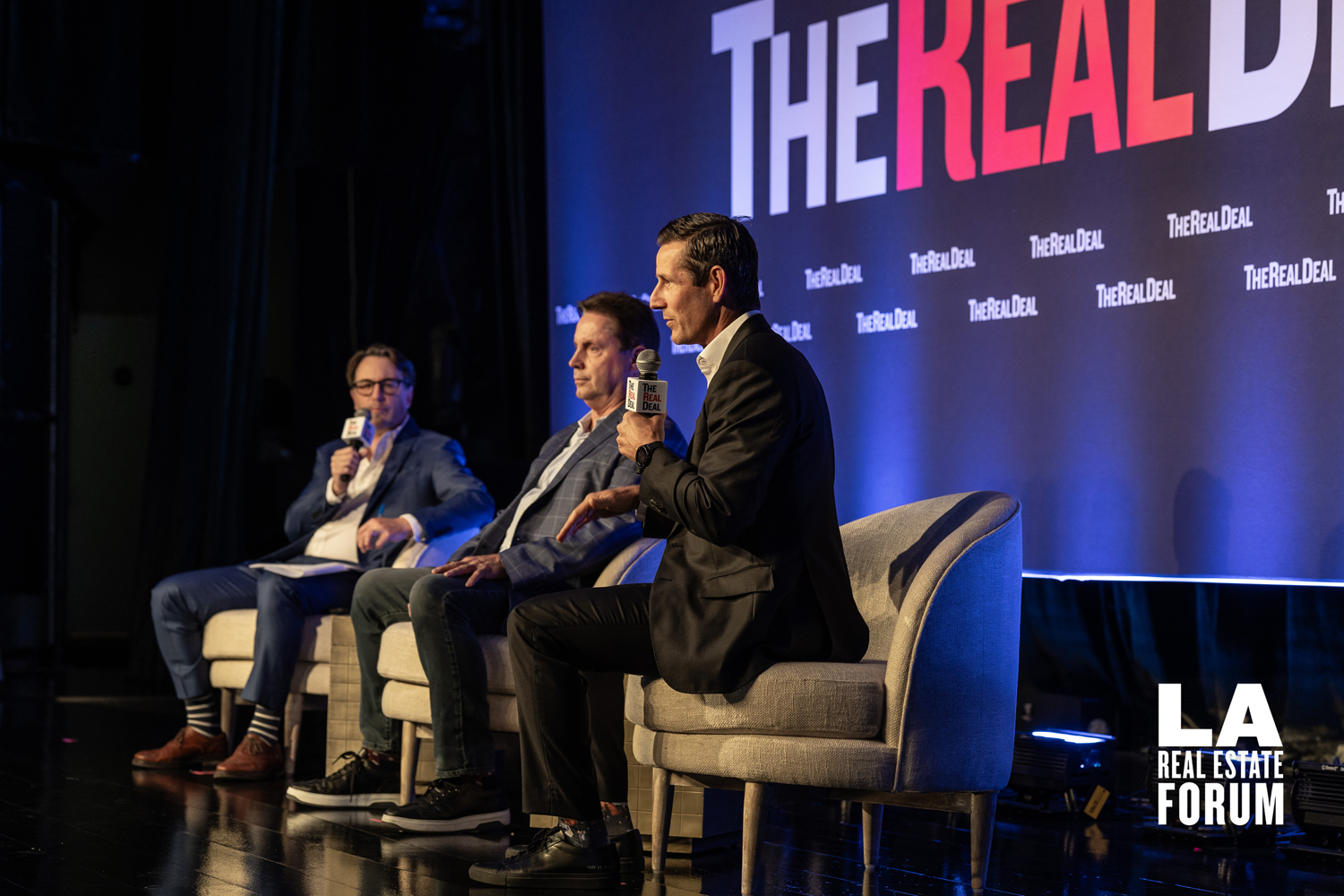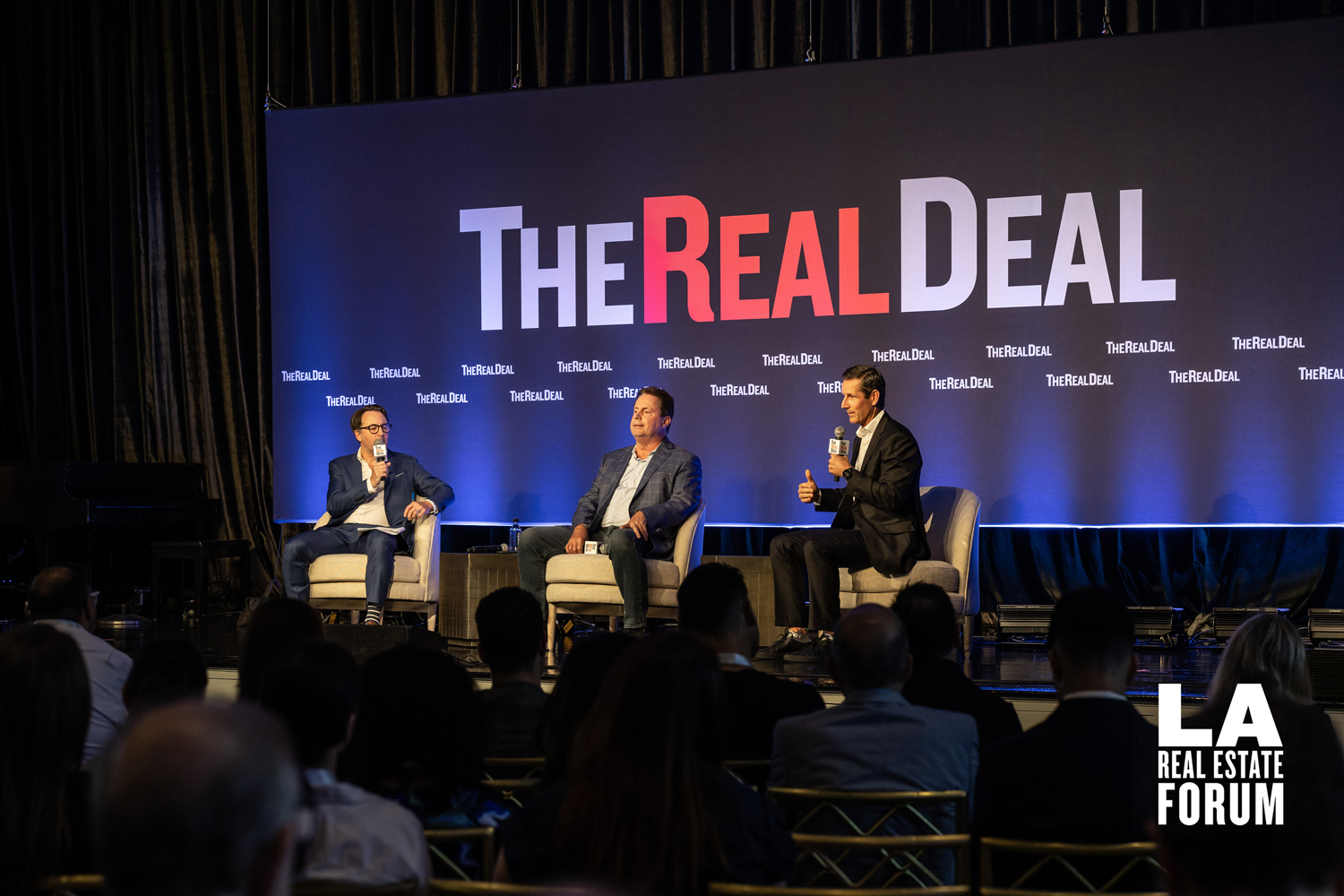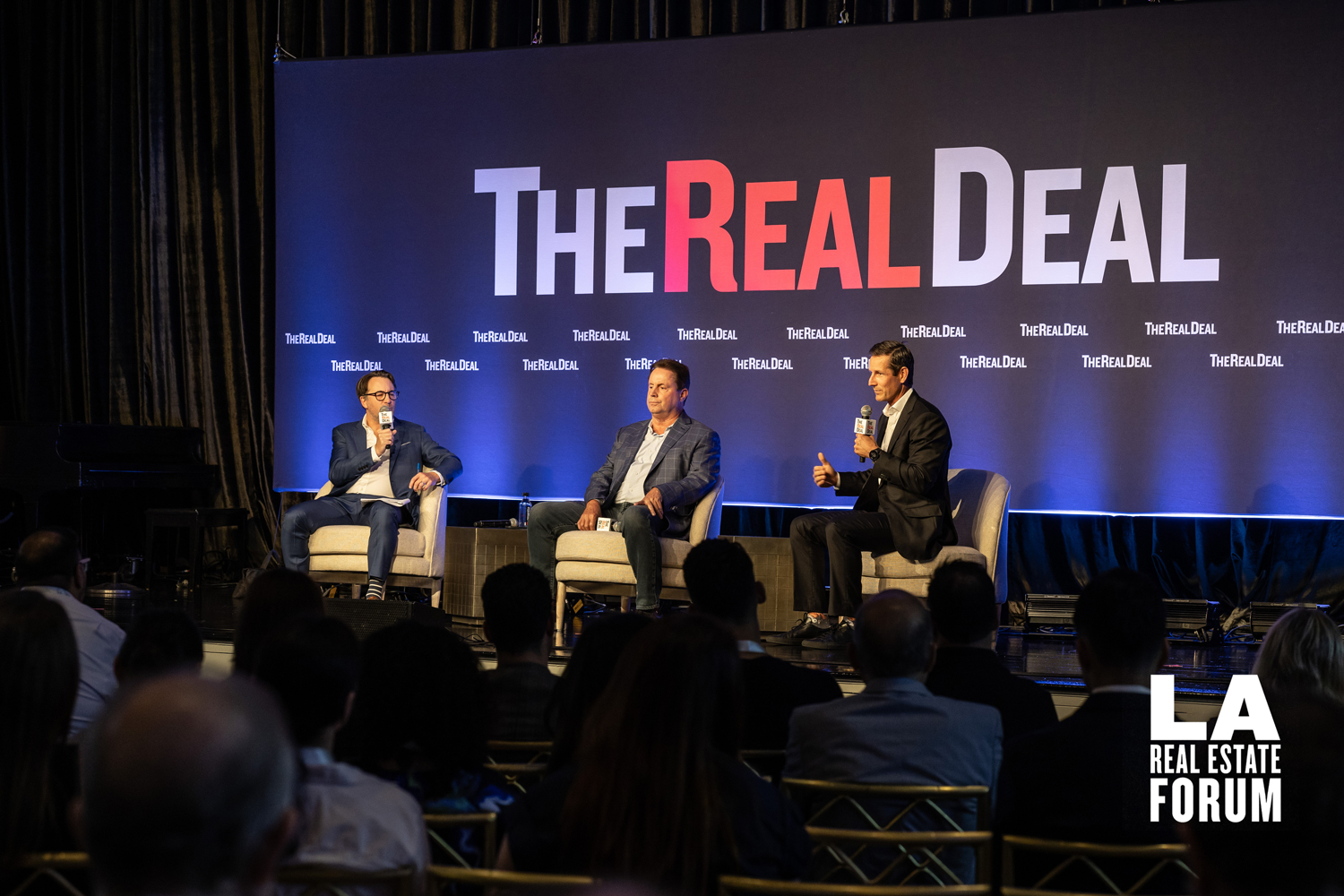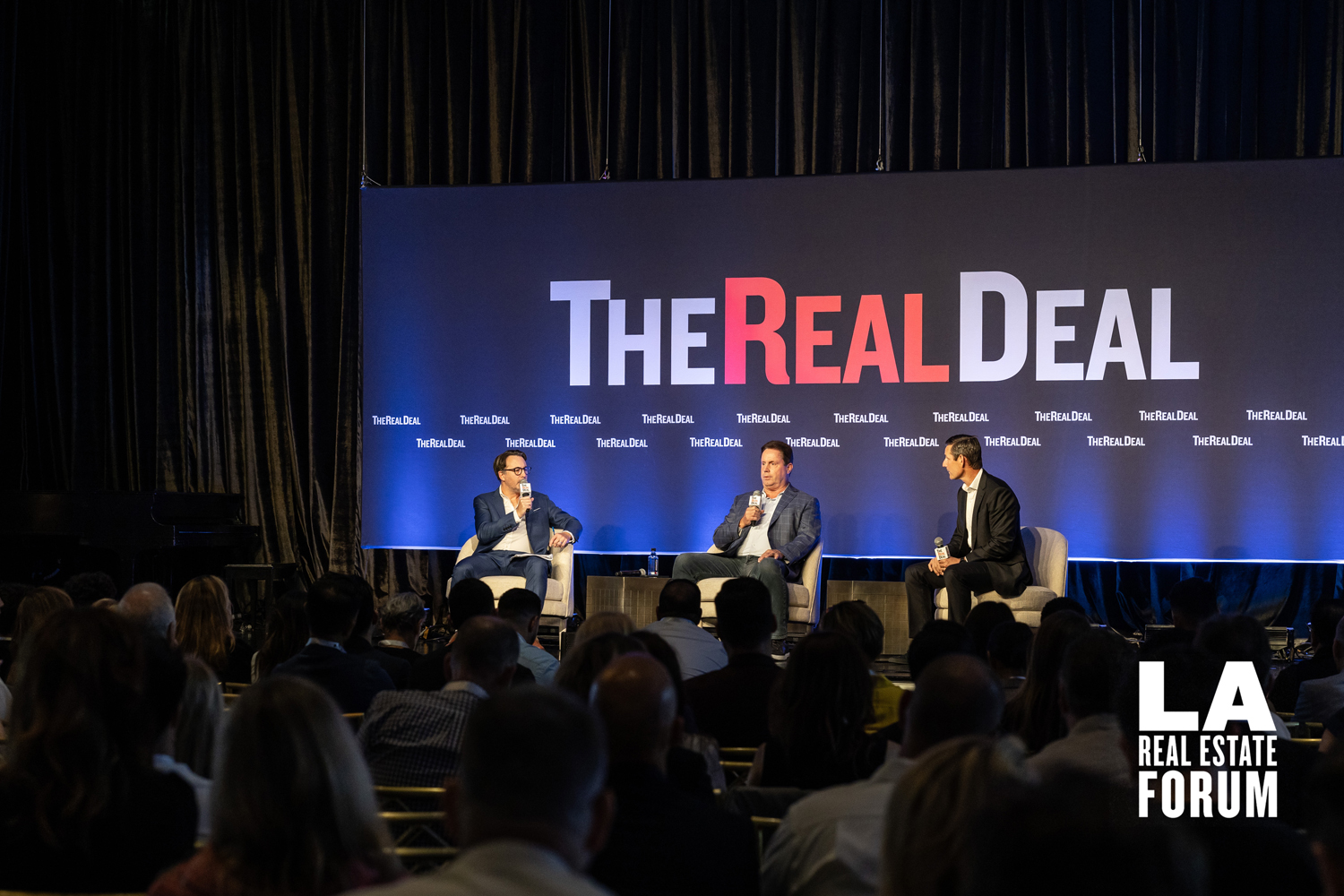The value of Los Angeles offices collapsed after a pandemic shift to remote work, tumbling as much as 60 percent from their last sale.
But like a bungee jumper from L.A.’s tallest skyscraper, prices have hit bottom and could begin to bounce back — providing opportunity for new investors, according to industry experts at an LA Real Estate Forum hosted Thursday by The Real Deal.
The event’s kickoff panel, “How to Save LA’s Office Market,” was led by Stuart Elliott, CEO of TRD, and included Todd Tydlaska, L.A.-based executive vice president at CBRE, and Kevin Shannon, co-head of U.S. Capital Markets for Newmark, based in New York.
For the hundreds of guests at the half-day conference at the Beverly Wilshire hotel in Beverly Hills, it was a glimmer of hope for a highly distressed office market.
“I think we’re scraping the bottom — I think there are some positive things out there,” said Shannon, who has completed $86 billion in commercial deals since 2010. “We’re just at the inflection point.
“When you know where the bottom is, then capital starts to step in — and greed starts to overtake fear.”
“We’ve been at the bottom for 12 to 18 months,” added Tydlaska, who noted that office users and private investors make up 90 percent of buyers in the bounce-back market.
Pre-pandemic, the buyers were mostly institutional. Scroll back to 2020, when employers in L.A’s tallest office buildings and beyond responded to the pandemic with a broad shift to remote work. Office buildings emptied out. Companies downsized offices. Foot traffic plunged, hammering local shops and restaurants.
Landlords, facing rising interest rates and falling occupancy and property values, defaulted on hundreds of millions in mortgage loans, with some surrendering offices to their lenders.
Office real estate suffered more than any sector of the market, with an overabundance of workplace cubicles, according to Elliott. Office buildings sold at a fraction of their pre-pandemic market value.
“There’s too much that we don’t need,” Elliott said. “For a lot of buildings, the distress is really hitting the fan right now,” especially in Downtown L.A.
But green shoots have sprung from the office market rubble, led by private investors worldwide. Sellers are capitulating to lower prices. The first half of the year saw no deals higher than $15 million. That changed over the summer, with three commercial deals above $50 million.
In July, an unidentified Chinese investor bought the troubled 777 Tower in Downtown Los Angeles for $120 million cash. The deal for the 1 million-square-foot, 52-story skyscraper at 777 South Figueroa Street worked out to $120 per square foot, resetting the benchmark for office properties in L.A.’s Downtown.
“The next two months, you’re gonna have eight (deals) over $50 million, so the pace is picking up,” Shannon said.
Office markets from Century City to south Las Vegas, from Bellevue, Washington to New York City, are doing well — based on properties with high amenities and streets with little crime, unlike Downtown L.A.
Office workers are also returning to their formal offices, with a notable uptick in Monday appearances. At the same time, 15 percent of office lease renewals are for downsized space.
CBRE had 16 office deals in the works after Labor Day. Newmark is counting 28 debt restructuring deals.
Tydlaska, of CBRE, sees a huge opportunity for investors, with location — as in all things real estate — the key. And with pressure on Los Angeles officials to rid Downtown streets of crime.
“I believe more money will be made in the office sector than in any other segment,” he told the audience in the Beverly Wilshire ballroom. “The point is: many of these private investors are really looking at what’s below the line — and what ‘I can take home’ everyday.”
— Dana Bartholomew
Read more
